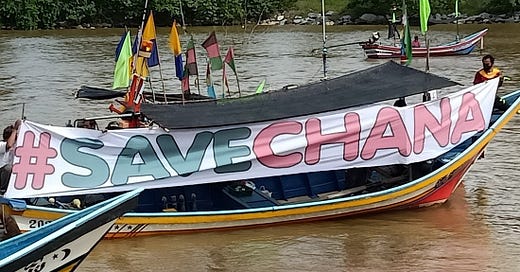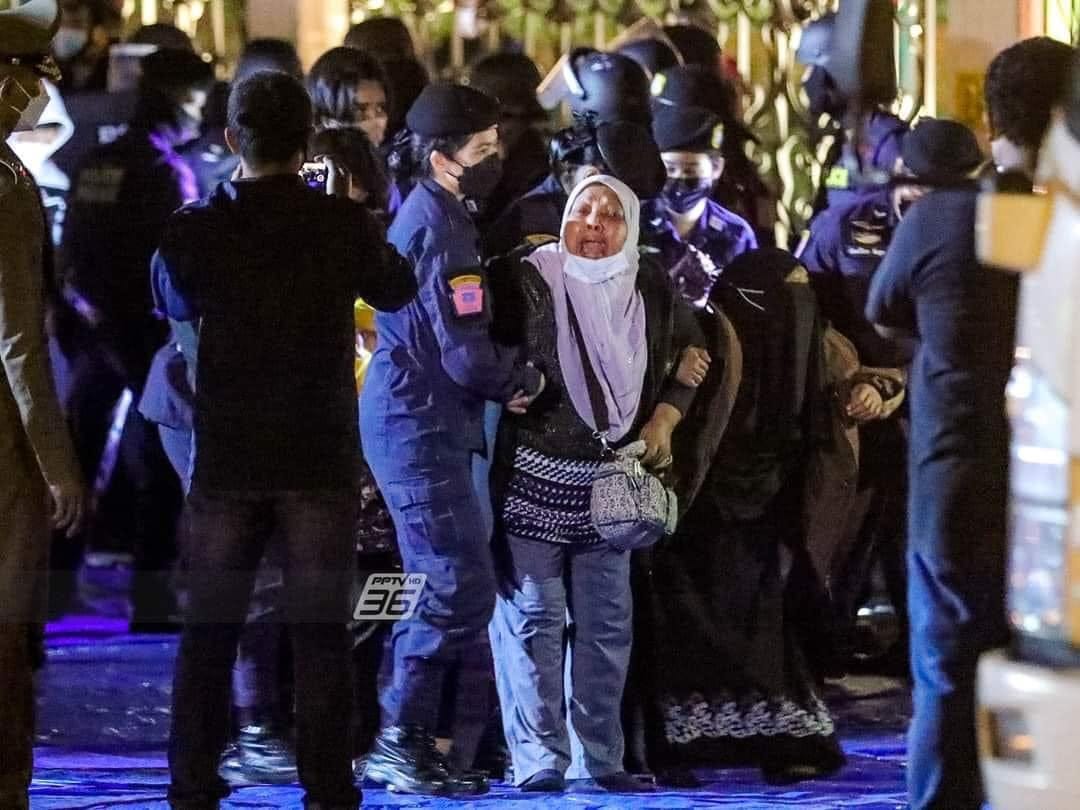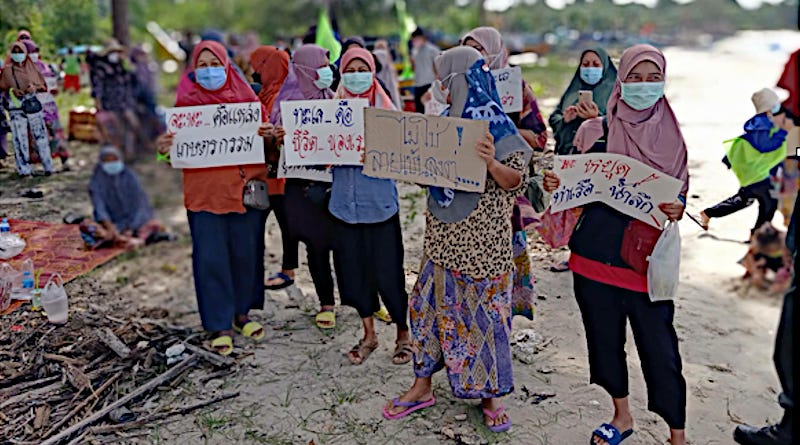The arrests of 37 elderly Thai villagers in front of Government House in Bangkok for peacefully protesting a proposed industrial estate in the country’s deep south have backfired on the government of Prayuth Chan-ocha, with environmental activists, academics and local environmental organizations turning the dispute into a national issue and a protest against the increasingly unpopular government.
The government has been the focus of student and other protests that the military-backed government has struggled with for months, almost since 2019 elections that critics said were rigged to keep it in power. The popular youth-backed Future Forward Party was outlawed despite, or perhaps because of, its formidable initial showing. Bencha Saengchantra, a Future Forward MP, has joined the current protest along with the Kao Klai Party and Greenpeace Thailand.
The 37 were released after a day in custody, with Prayuth making a sudden about face, ordering that a factfinding committee led by deputy prime minister Supattanapong Pummachaow be formed to investigate the project. As with any large acquisition, the issue of corruption has arisen, with the Bangkok Post disclosing that families close to the embattled Democrat deputy interior minister Nipon Boongamanee acquired large tracks of land, which were later sold to the project developer.
Some pundits claim the committee is a tactic to buy time, while others claim it is a response to quell criticism over the arrest of the elderly villagers.
The project, in the bucolic seacoast area of Chana district, is intended to become a key part of the Southern Economic Corridor, where Bt18.7 billion (US$557.6 million) has been approved for infrastructure development. Villagers fear the environmental consequences, going so far as to repeatedly take their protest to the national capital.
Some 30,000 residents of the Chana subdistricts targeted for development have been earning a living through agriculture and fishing for more than 100 years, relying on catches of octopus and squid. They have formed the Chana Rak Thin or Love Chana Network, requesting that Prayuth honor an MOU that the prime minister tore up agreeing to an environmental impact assessment and ceasing preliminary work.
While the men go out in fishing trawlers, the women process the catches in home factories and sell the produce. The plan is about turning the bucolic rural seacoast area into an advanced industrial city of the future that would massively boost economic activity in the Thai Deep South border provinces. Some 60 percent of the land is allocated to power generation, heavy industry and ancillary port industries. The rest is allocated for light industry and a new smart city. The older generation are concerned about the effect of the project on their livelihoods.
One group of women told Asia Sentinel they are too old to study and work in factories saying development of the industrial estate will heavily impact on their ability to continue their present simple existence-based cottage industry and multi-incomes from varying activities. The use the narrative ‘daughter of the sea’, owing their life and cultural existence to their connection with the coast.
The pioneering company in the Chana project is TPI Polene Power, a major power producer and the owner of a nationwide chain of petrol stations. TPI has promised to create 100,000 jobs and invest US$9.5 billion into the estate as well as promising scholarships to local residents for further study to gain qualifications to work in the new industries.
The second is IRPC, a subsidiary of the state-owned oil and gas conglomerate PTT. IRPC developed the Map Ta Phut Industrial Estate, which is the heart of Thailand’s petro-chemical industry. There is fear the proposed industrial estate will bring air and water pollution, release of industrial waste into the environment and excess traffic, problems that have plagued the Map Ta Phut area.
In addition, public safety issues have emerged including a 2012 explosion at the ACB chemical plant which killed 12 people and injured 14. Some stages of the Map Ta Phut estate didn’t undergo any public health impact assessment, while employment opportunities only benefited young tech graduates.
Residents in Chana are worried about the construction of a 3,700 megawatt power complex featuring four plants which could potentially release sulphur dioxide and nitrogen oxide into the air. Waste from petroleum refining, natural gas purification and pre-treatment of coal within the industrial park are a potential environmental hazard. There are also concerns over discharges at the deep port facilities, which will be on reclaimed land out to sea, potentially endangering residents’ reliance on fishing as a source of income. The deep port will disturb the delicate eco-system in the area, home of sea turtles and endangered pink dolphins.
The Chana Rak Thin group have been protesting against the proposed industrial estate since last year. In July 2020, representatives traveled to Yala city fora meeting on the project at the SBPAC headquarters, but were refused admittance. Protests outside government house in Bangkok in December 2020 led to the MOU that Prayuth later voided. Villagers say they have heard nothing for a year from the committee to oversee the project.
Some entrepreneurs have visions of preferred local options that have never been considered by the government including expanded fish processing and canning factories, like ones that already exist in nearby Songkhla. There is also potential for expanded goat farming and processing. Others are interested in developing eco-tourism projects in an area full of natural features. These locally preferred options have never been considered by government.
The younger generation have reframed the issue via social media as an environmental struggle, one most likely to get international attention. The young activists know the power of photos and video, protesting outside government offices like flash mobs. There are greater audiences online than in the town of Chana. One student even wrote to the environmental activist Greta Thornburg, telling her of their environmental plight. Perception they say, is the key when running a protest from a relatively remote area.
The Barisan Revolusi Nasional (BRN), one of the main Islamic insurgency groups within the Deep South, has unprecedently entered into the Chana issue, most probably taking advantage of Prayuth’s miscalculation over the arrests. BRN information department spokesmen uploaded a promise on YouTube to support the villagers against what it called the repressive and inhumane actions of the government, probably aimed at building more grassroots support for BRN.
Originally published in the Asia Sentinel 11th December 2021
Click on subscribe so articles can be directly emailed to your inbox:






